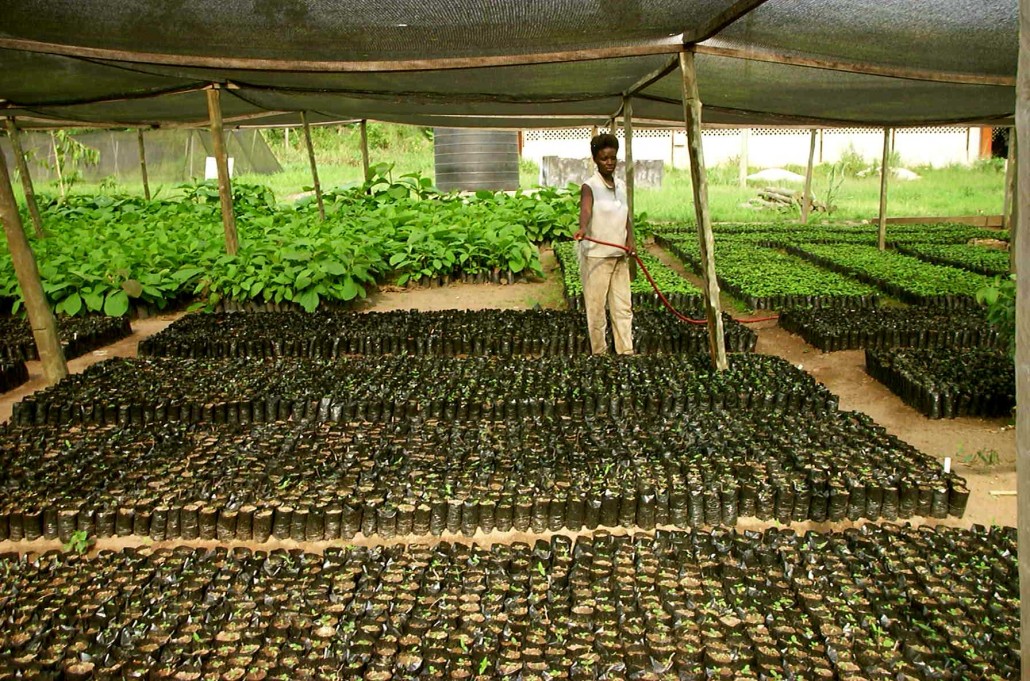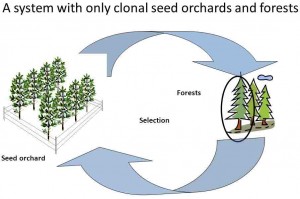Ghana Seed Orchard
Needless to tell that tropical forests are endangered all around the world. Apart from the loss in biodiversity, in our view, the clearing of tropical rainforests lies at the heart of the disruption of the rainfall patterns all around the world, and constitutes a major factor in global warming.
The normal propagules of most if not all plants and trees of such forests are seeds. Therefore, if one wants to rehabilitate tropical forests, or if one wants to establish a tree plantation, seeds are indispensable. These can for some species be collected from the ground, for some one can risk climbing into the trees, but for the majority of species this is not a realistic option. Tropical trees often do not produce seeds at regular intervals as in the temperate regions, and fruiting may vary from one to up to seven years. Reliable sources of seed are hard to find, and, if available, the quantities and qualities are both too variable.
Establishment of seed orchards is the answer. They can provide a reliable supply of quality seeds for the major timber species, but also of seeds of other trees that are essential for the rainforest ecosystem. There are no blueprints for layout and planting arrangements of tropical seed orchards. The trees are in relatively vulnerable surroundings, especially in the beginning, and planting arrangements and the starting material must be chosen such that pests and diseases are prevented as much as possible. Management of a seed orchard also differs from a normal timber plantation.
But planting an orchard will not be enough, one also needs to check the quality of the seeds, determine superior lines by testing offspring, treat and store the seeds so that they are still of high quality when sold and planted, etc. Some trees produce so-called recalcitrant seeds, which can not be stored for the necessary length of time. For these species seedlings, cuttings and graftings from specially reared trees are the best way to go.
Unfortunately, establishing a seed orchard in Ghana requires an enormous investment, return on this investment comes very late – typically starting from year 10-, while the undertaking involves considerable risks: uncertain land ownership, instable governments, diseased trees, etc. Therefore not many orchards have been established until now. Rehabilitation programmes however are facing a limiting shortage of quality forest seeds now already. One can easily calculate that the few that have been established will only produce a fraction of what will be needed in the near and further future when society decides that in order to do something about global weather, equatorial rainforests have to be re-established. We have some experience in this, and maybe we can be of help.
Plantations International has staff with ample seed technology expertise, ranging from seed system development, seed production technology, seed quality management, seed physiology, tissue culture, molecular approaches, and tropical botanists to assist them in solving the problems.



